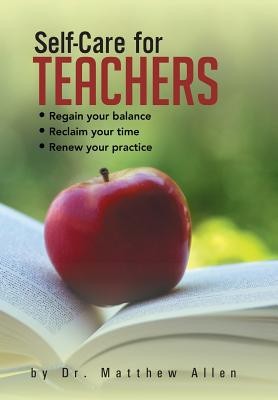
- Išsiųsime per 10–14 d.d.
- Autorius: Matthew Allen
- Leidėjas: Trafford Publishing
- ISBN-10: 1466983639
- ISBN-13: 9781466983632
- Formatas: 15.2 x 22.9 x 1.9 cm, kieti viršeliai
- Kalba: Anglų
- Extra -15 % nuolaida šiai knygai su kodu: ENG15
Atsiliepimai
Aprašymas
It's often been said, with some validity, that we teach what we need to know. So, too, we write what we want to read: in this case, the book that I wish someone had written for me when I was a young teacher just starting out. I began teaching in a British-style boys' boarding school: all boys, all boarding-a trial by fire if ever there was one. I was fresh out of university, with a good MA but virtually no teaching experience and only the dimmest idea of why I was joining the profession. I had been told by someone I trusted that I had a natural talent for teaching, felt faint stirrings of vocation, and wanted to give something back after a long and self-indulgent education. Beyond that, I had no idea of what I was getting into or why. It was a strange Darwinian world of bad food, cold showers, harsh discipline, and cross-country runs, with other vestiges of British public school tradition, including bread pudding, corporal punishment, and daily chapel. Paradoxically, despite the strict discipline and institutional formality-the masters were universally referred to as Sir, and the boys addressed by surname-a great fondness grew between staff and students. We were, at the very least, honorable enemies reminiscent of Tom Brown's School Days-at best, a boisterous family marooned together, more like Swiss Family Robinson. Something hilarious happened every day. The boys were irrepressible, despite our best efforts, and the charged, insular atmosphere of the school somehow produced the most extravagantly colorful personalities. I was always amazed at how the boys bounced back after a frozen route march or an exhausting exam week; it was the masters who showed the strain. Partly, we lacked the resiliency of youth. We were older in our bones, and our sinews had lost their elasticity. Partly, we followed an unrelenting schedule since, in addition to our teaching duties (including a half day on Saturday), we were required to patrol the dorms, supervise study hall, and lead all-weather outdoor adventures. Sixty-hour workweeks were standard, rising to eighty hours during peak periods. But we also suffered the natural consequences of an immutable law and a professional handicap, which I will explain.EXTRA 15 % nuolaida su kodu: ENG15
Akcija baigiasi už 5d.05:40:13
Nuolaidos kodas galioja perkant nuo 10 €. Nuolaidos nesumuojamos.

- Autorius: Matthew Allen
- Leidėjas: Trafford Publishing
- ISBN-10: 1466983639
- ISBN-13: 9781466983632
- Formatas: 15.2 x 22.9 x 1.9 cm, kieti viršeliai
- Kalba: Anglų




Atsiliepimai